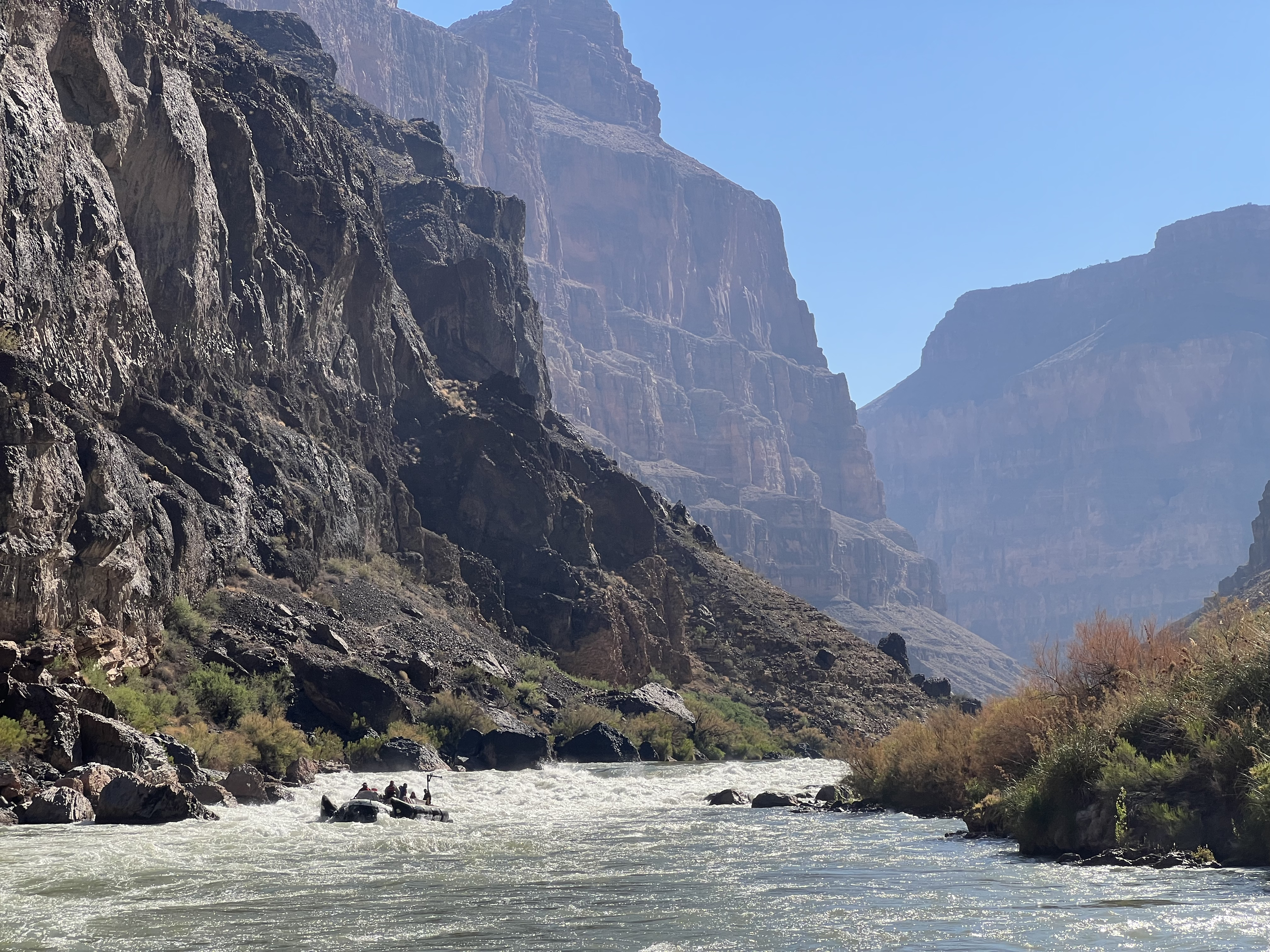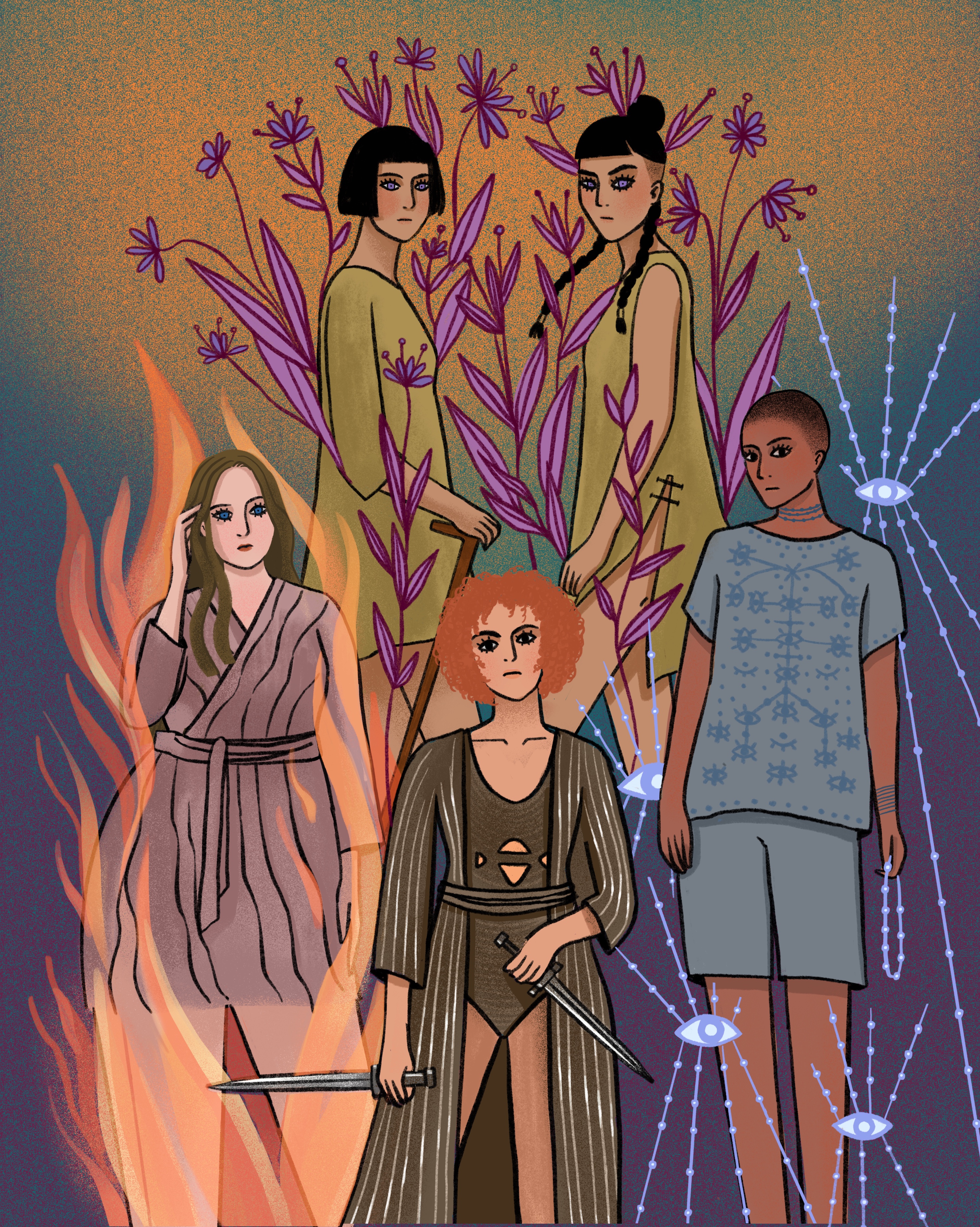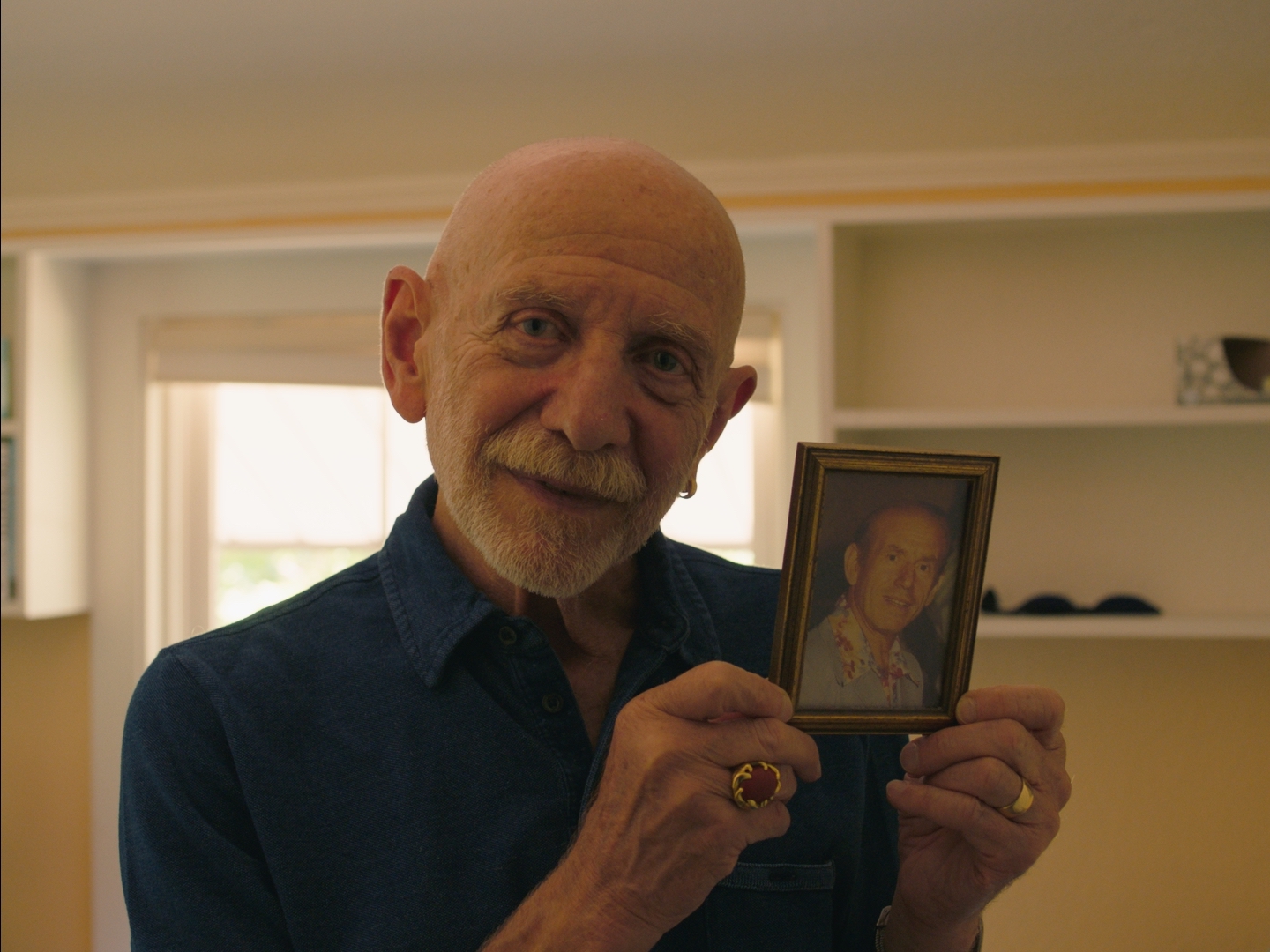Genre
Synopsis
Emery drives down a deserted highway, passing abandoned vehicles strewn along the roadside. Her view of the drought-stricken terrain is interrupted by memories of time spent along the Colorado River with her aunt. She stops at Glen Canyon Dam, now a relic of a bygone era, its concrete structure marked with closed signs and graffiti. Despite the dystopian surroundings, Emery observes the Colorado River flowing through the canyon.
She drives on to Lee’s Ferry, the boat launch for the Colorado River, where she meets two developers, Noah, geologist turned corporate hack and Floyd, land for extraction CEO from the Hydroelectric Company. Sent by the Bureau to monitor their progress, Emery joins them on a seven-day river trip. The expedition also includes Jordan, and Kendall, two river guides and river devotees.
As they navigate the river into the canyon, Emery monitors the group while studying the ecosystem, particularly the invasive Tamarisk plant and its bio-agent, the Tamarisk Beetle. Tensions develop between Emery and Noah as their plans for new, smaller dam projects along the river start to take shape, and Emery’s research reveals crucial information about the river’s health.
The sheer magnitude of the river and canyon becomes overwhelming to Floyd who abandons the trip, exiting with Kendall at Phantom Ranch. This leaves Emery with Jordan and Noah to continue downstream. Noah attempts to seduce Emery to persuade her to sign off on the project, despite their flawed methods.
When Noah suddenly disappears, and Jordan sets out to find him, Emery is left alone in the canyon.
Bio
Emilie Upczak is an independent filmmaker, academic, an Andy Warhol grant recipient and a Rotterdam Producers Lab alumni. She has her MFA in Film from Vermont College of Fine Arts. Her work focuses on climate justice, migration, and economic, racial and gender hierarchies. Her films reflect her interest in hybridity, blending fiction and non-fiction techniques, and highlighting actors and non-actors. She makes narrative, experimental, and non-fiction films and works with archival footage and collections. Her films range from feature length narratives to public video projections to digital exhibitions.
Emilie spent ten years living in Trinidad and Tobago, where she began making films and worked as the Creative Director for the trinidad+tobago film festival spearheading the Caribbean Film Database and the Caribbean Film Mart. Her debut narrative feature “Moving Parts”, a human smuggling and sex trafficking film, set in the capital city of Port of Spain, premiered at the Denver Film Festival and is available through the films distributor, Indiepix.
In 2022, she wrote and directed a narrative short film entitled “Silt”, a story of loss centered on the Colorado river, which premiered at the Independent Film Festival Boston where it won the special jury award and went on to receive a Federal Emergency Management Agency Climate Resilience Storytelling Award. “Silt” also screened at the Smithsonian Institute Mother Tongue Film Festival.
Awards History
Independent Film Festival Boston 2024 - Special Jury Award
Houston Cinema Arts Festival 2024 - Narrative Jury Prize
Borders | No Borders Federal Emergency Management Agency 2024 - Climate Resilience Storytelling Award
Credits
Producer - Christi Cooper
Field Producer - Harlan Taney
Co-Producer - Lisa Yelloweagle






